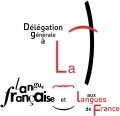Français
Supported by:


Sponsored by:




Conference presentation |
For more than a decade, the TIA group has studied the large field of terminological questions, confronting and combining various disciplines: Linguistics, Natural Language Processing, Artificial Intelligence, Information Sciences, Knowledge Engineering, etc. Knowledge is memorised and transmitted in documents. In scientific or technical fields (medicine, aeronautics, education, etc), terms play an important role in ensuring the precision of information. The rise of the internet and globalisation have increased the sharing of written documents between cultures and thus, between languages, but also between fields. This phenomenon creates new problems which emerge when exogenic knowledge is appropriated by a community gathered around a topic. TIA 2007 will be particularly focused on the migration of terms which can be understood as the passage from a language to another, from a domain to another, from an application to another, or as an evolution through time. The problem which underlies this question is the instability of terms and has been left unconsidered in order to give precedence to the needs for standardization. Communications may tackle theoretical questions or consider methodological aspects. Interdisciplinary studies which stress the possible convergences and co-operations between various disciplines around terminological questions are particularly welcome.
Topics of the conference |
You are invited to propose an original communication having a theoretical, methodological or practical range, on one of the following topics (non exhaustive list):
- Semantic theories and the terminology compared to textual linguistics and ontologies domains
- Methods to localise terminologies evolution (diachronic aspects, interlingual transfers)
- Localisation of terminological evolutions within cultures or different communities (scientific, technical) and role of terminological resources in this localisation
- Confrontation of terminological terminologies / terminological resources / ontological resources issued from different languages, communities, periods
- Automatic or manual constitution of terminologies from mono or multilingual corpora
- Methods to automatically structure terminologies (identification of relations between terms, distribution in fields)
- Use of terminologies to constitute and structure ontologies
- Methods and criteria to evaluate and validate terminologies
- Reusability, standardization, comparison and fusion of terminological resources
- Difficulties to build multilingual terminologies
- Applications exploiting terminological resources (semantic web, management of documentary flows, information retrieval, document classification, technological survey, question and answer)
The TIA group (http://tia.loria.fr/) organises this conference which follows conferences TIA'95 (Villetaneuse), TIA'97 (Toulouse), TIA'99 (Nantes), TIA'01 (Nancy), TIA' 03 (Strasbourg) and TIA'05 (Rouen). Founded under the aegis of the AFIA in 1994, now AFIA/GdR-I3 group, this group gathers researchers in Linguistics and Artificial Intelligence. The received papers will be submitted to an international review committee constituted by members of the TIA group and by experts of the concerned fields (3 reviews per paper). The papers could be approved as oral communication or poster.